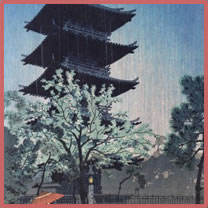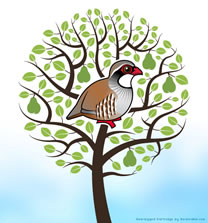I learnt a nice new German word today – kichern [ˈkɪçɐn], which means to giggle or snicker. Related expressions include:
– ein Kicheranfall = a fit of the giggles
– Wir haben uns darüber gekringelt = We had a good giggle about it
– anfangen herumzukichern = to get the giggles
This also got me thinking about which words rhyme with giggle – there aren’t many, and few of them are commonly-used:
– friggle = to wriggle; to fiddle, fumble
– higgle = to hawk or peddle provisions; to wrangle (over a price)
– jiggle = a weak, shaking movement; to shake, rattle, or wiggle
– liggle = to laugh and giggle at the same time
– niggle = a minor complaint or problem; to dwell too much on minor points or on trifling details; to fidget, fiddle, be restless
– piggle = a long-handled fork for mixing or digging; to dig or uproot; to scrape; to worry about minor points
– scriggle = to squirm, wriggle or squiggle; to scribble, jot
– sniggle = to chortle or chuckle; snicker; to catch an eel by thrusting a baited hook into its den; to steal something of little value
– squiggle = a short twisting or wiggling line or mark; to write (something) illegibly
– striggle = to complain about one’s trivial social problems
– swiggle = to wriggle, wiggle or squirm; to drink to excess
– wiggle = to move with irregular, back and forward or side to side motions; to shake or jiggle.
– wriggle = to twist one’s body to and fro with short, writhing motions; to squirm.
Do you know any others?
Are there interesting words for giggles and other types of laughter in other languages?
Sources: Reverso, Wiktionary, Urban dictionary


